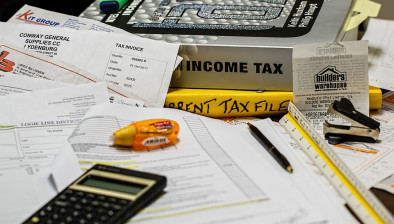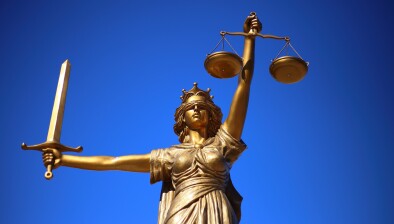Blog: Simple change to LBTT could produce wide benefits

David Alexander, managing director of Edinburgh-based property management firm DJ Alexander makes the case for tweaking LBTT
Well, Minister, we told you so. But you refused to listen. And now the chickens are coming home to roost.
The “Minister”, in this case, is Derek Mackay MSP, finance secretary to the Scottish Government. “We” represents residential property professionals. And the “roosting chickens” come in the form of a prediction that tax income from property is likely to be below-target following a slump in residential sales in the first four months of the current financial year.
According to an analysis of figures from Revenue Scotland by the Scottish Property Federation, revenues from residential property as part of Land and Buildings Transaction Tax (LBTT) were down £1.8 million (or 2%) against those for the same period last year. As a result, says the Federation, the Holyrood government is unlikely to achieve its revenue forecast for residential LBTT of £305m as set out in the last Scottish Budget.
It comes as no surprise that a substantial amount of this reduction is the result of less income from sales of £325,000 and above (the point after which LBTT becomes more expensive that the equivalent stamp duty in England and Wales) and which represents about 70% of all residential-related LBTT income.
For me, perhaps the most significant revelation is that although properties of £750,000 made up just 0.5% of transactions, these contributed no less than 14% of revenue in the first four months of 2018/19.
While it gives me to great pleasure to say so, I have consistently warned that the draconian levels of tax at the upper end of the market would lead to a significant downturn in transactions – and consequently in total tax take. I am not against progressive taxation per se, believing that to fund our public services, higher earners should pay that bit more (both in actual and percentage terms) than those on low incomes. However, LBTT takes this policy almost into the stratosphere.
Let us compare the tax dimension of two transactions, one at £200,000 and the other at £1m. On the first sale the tax would be £1,100 or 0.55%. If the £1m sale was taxed at the same rate, the amount of LBTT payable would be £5,500; however the tax take on a £1m transaction is actually £78,350. Is that not carrying “progressive taxation” just a little bit too far?
Clearly, there is an element in Scotland’s government that sees nothing inequitable about this as those paying the highest tax are the “rich”. The problem for our politicians is that there are just not enough wealthy people in Scotland to support such a policy. I know of scores of people who have been deterred from upsizing to property in the “£750,000 and above” price bracket (and therefore paying tax into the Scottish treasury) because of the rates of LBTT. So rather than move upwards they are extending their existing properties or taking professional advice to make the most of the space they already have.
So what can be done, both to kick-start the upper-end market and, by implication, increase the coffers from LBTT for the government? Though it probably sticks in the craw, Mr Mackay could help the situation by adopting the position of the late, lamented Mrs Thatcher that “lower rates of tax mean more income from tax” – and subsequently was proved right when this became policy under her premiership and the tax take significantly increased.
If just 0.5% of residential transactions above £750,000 is responsible for 14% of LBTT, it is surely obvious that a lower rate of tax would encourage more sales, leading to a net increase in revenue for the government from this sector.
For what it is worth, my suggestion is simple: raise the 10% threshold from its current £325,000 level to £500,000 and abolish the 12% threshold that kicks in at £750,000. Over to you, Mr Mackay.
This article was originally published in The Scotsman














